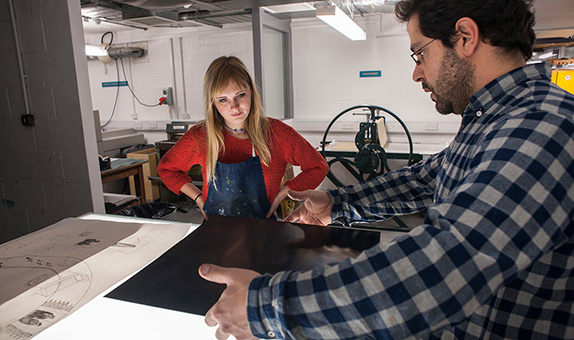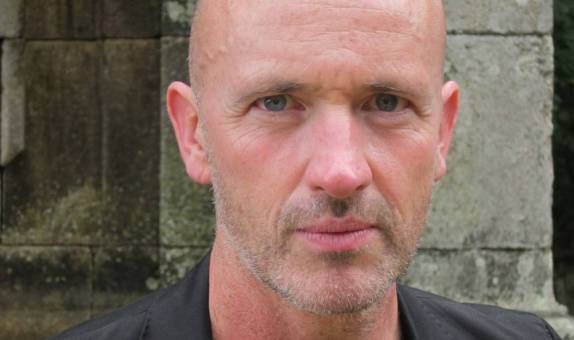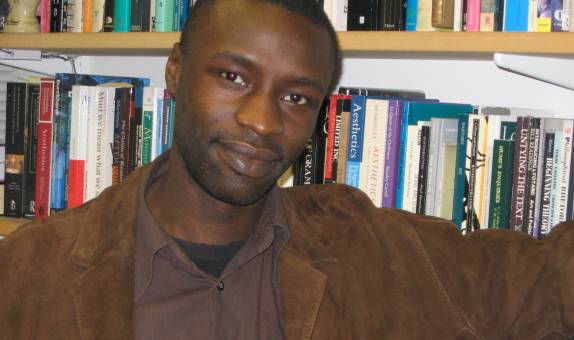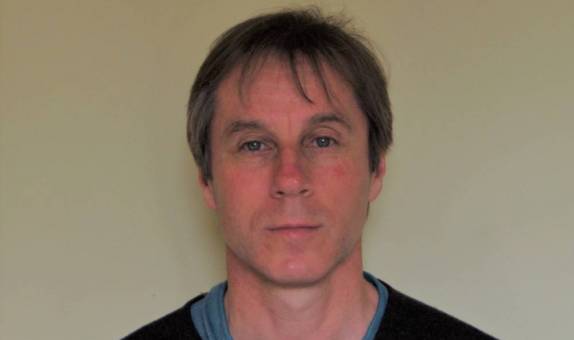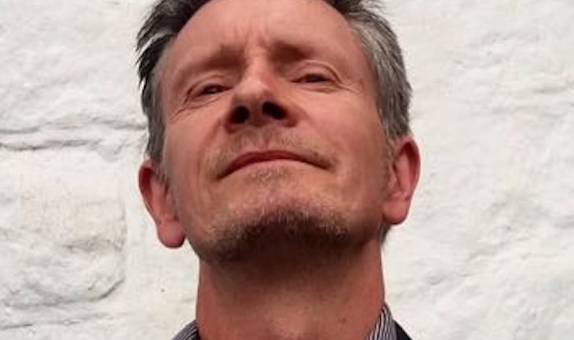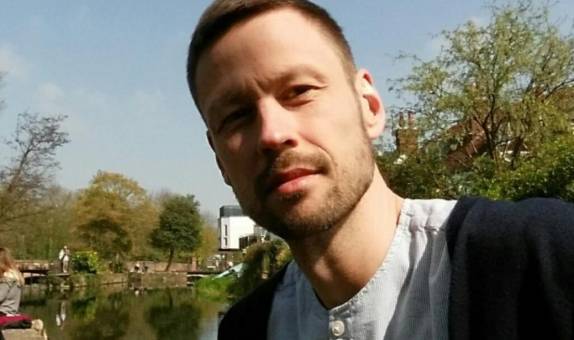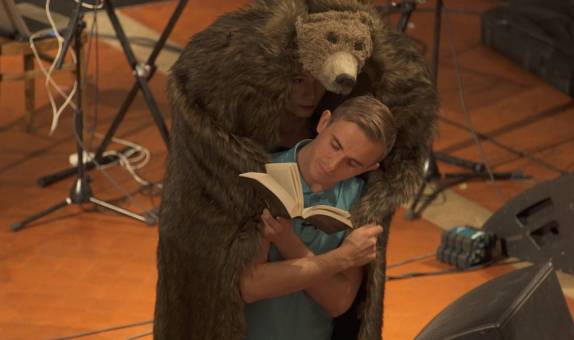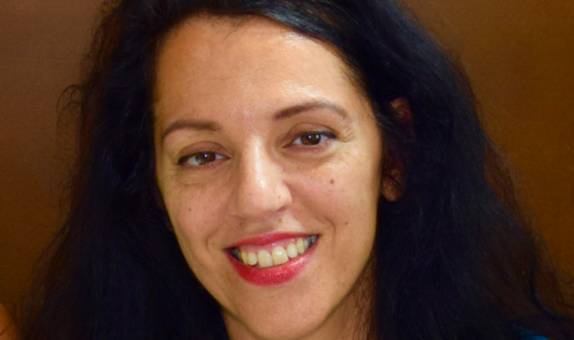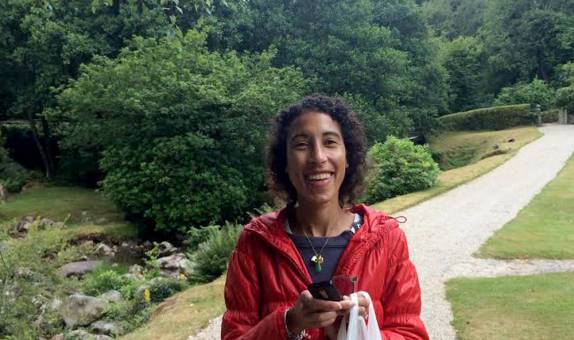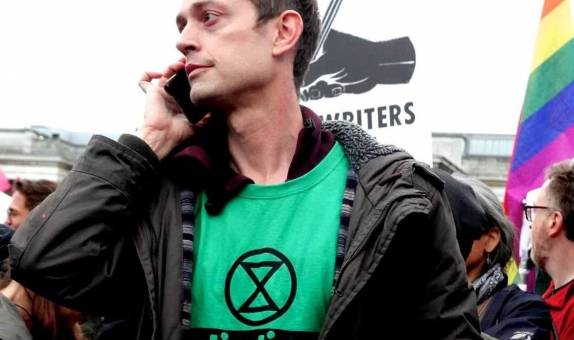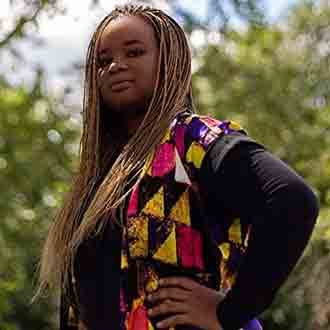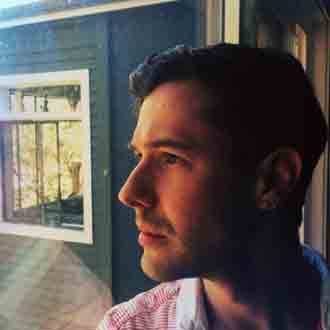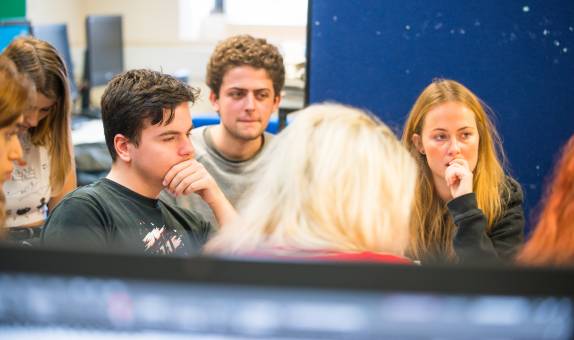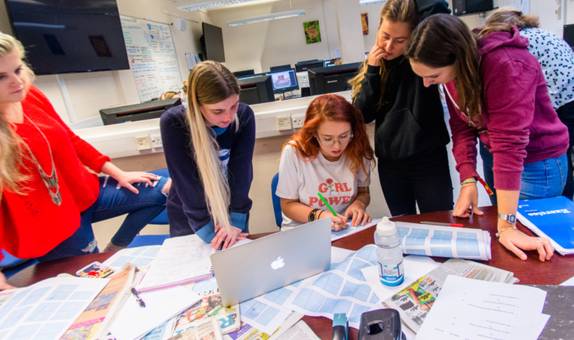Creative Writing BA (Hons)

Teaching Excellence Framework (TEF) Gold award
Our commitment to high quality teaching has been recognised with a TEF Gold rating. The University has received an overall rating of Gold, as well as securing a Gold award in the framework's two new student experience and student outcomes categories.
Why choose this course?
Are you a budding novelist, Netflix screenwriter or experimental poet? On this degree, you'll learn the art and craft of writing in all its forms. Taught by published authors, you'll gain a wide range of skills across creative and non-fiction genres. You'll examine how writing can be used to communicate in a range of contexts, with appropriate uses of style, register and form.
You'll take part in masterclasses by industry professionals and join the thriving community of our specialist Writers' Centre. An extended writing project will be on a subject of your choice. You'll also build a professional portfolio and work on real-life industry projects, giving you vital employment experience to prepare you for a career in writing.
| Attendance | UCAS code | Year of entry |
|---|---|---|
| 3 years full time | W8P5 | 20242025 |
| 4 years full time including sandwich year | W85P | 20242025 |
| 4 years full time including foundation year | WP58 | 20242025 |
Please note: Teaching on this course may take place on more than one KU campus.
| Main location | Penrhyn Road |
Reasons to choose Kingston
- Many of our graduates have had their work published. Recently, Oyinkan Braithwaite's multi-award winning debut novel My Sister, The Serial Killer, was longlisted for the Booker Prize 2019.
- This course covers a range of formats, including digital writing, fiction and creative non-fiction, poetry, and screenwriting.
- Workshops will allow you to hone your writing craft, while lectures and seminars will give you the tools you need to develop your own creativity.
- To help you master the kinds of writing that interest you most, you can choose to study works of literature or film.
The Art School Experience
As part of Kingston School of Art, students on this course benefit from joining a creative community where collaborative working and critical practice are encouraged.
Our workshops and studios are open to all disciplines, enabling students and staff to work together, share ideas and explore multi-disciplinary making.

What you will study
This course is intellectually stimulating and exciting, designed to provide you with opportunities for creative writing across a variety of genres and media, embracing poetry, prose fiction and non-fiction, professional writing, and writing for radio and screen.
You'll work with published writers, academics and industry professionals on writing for digital media, pitches, exhibitions, reviews, and articles.
The course features two distinct pathways. The literature pathway features modules that allow you to explore a variety of literary topics and texts in depth. If your main interests lie in writing for and about film and television, you can elect to take the degree's film pathway, on which you'll study film in depth.
Modules
Each level is made up of four modules each worth 30 credit points. Typically a student must complete 120 credits at each level.
Literature Pathway
Film Pathway
Optional year (both pathways)
In your first year, you'll be introduced to the field of creative writing through a variety of practical workshops and seminars. You'll attend interactive lectures, small-group discussions and individual writing exercises.
In the second year, there is an increasing emphasis on private study and independent writing. You'll develop the appropriate skills, techniques, and practices in order to produce a sustained piece of writing in poetry and fiction.
In your final year, you'll have the opportunity to complete an extended writing project on a subject of your choice, and to work on real-life industry projects, giving you vital employment experience. Through optionality, both at assessment and module level, the programme will enable you to tailor your degree to suit your interests and employment or enterprise goals. Workshops will allow you to hone your writing craft, while lectures and seminars will give you the tools you need to develop your own creativity.
Year 1 core modules
Introduction to Creative Writing I: The Writer's Toolkit
30 credits
This module centres upon practical work designed to develop the skills appropriate to the undergraduate study of creative writing. These skills will be focused on the following areas: the analysis and use of published writing; language and style; seminar/workshop practice; and habits of writing, self-reflection and revision. The module will investigate how writers think about their craft and the techniques they use to write most effectively in their various mediums. Weekly lectures will be given by practising writers who will introduce students to their own published work as well as that of a wide range of other authors. Students will read, analyse and discuss poems, short stories, plays and essays, and will develop a greater awareness of language and style in writing through a variety of exercises. These workshop exercises will allow students to establish guidelines for constructive participation and encourage co-operation and self-reflection.
Reading London: Drama, Poetry and Prose
30 credits
This module introduces you to the literature of London, from the rise of Renaissance theatre culture to its fictional futures, and from explorations of its urban heart to its sprawling suburbs. You will investigate how numerous writers have depicted everyday life in the metropolis, as well as social upheaval, crime and injustice. You will consider the emergence of distinct literary cultures in the capital, the ways London's position at the centre of a global empire has shaped its literature, and how writers have in turn represented the experiences of particular groups, for example, social elites, immigrants, women, and children.
The module will also introduce you to some of the most fundamental categories of literature. The module will be organised into three strands: one on drama, one on poetry, and one on prose (fiction and non-fiction). In each strand you will identify the distinctive characteristics of particular forms and genres of literature, and of modes of writing that developed at particular historical moments. Through close study of a range of literary texts we will consider, for instance, what distinguishes tragedy, comedy and realism in drama, how poets have engaged with the sonnet form or the epic, what defines the memoir, and how to explain the differences in narrative style between realist and modernist fiction.
Our weekly interactive lectures will be complemented by study trips to locations across London, which may include a visit to the Globe Theatre, the London Museum or a walking lecture following the route taken by Mrs Dalloway in Virginia Woolf's novel of the same name.
Writing that Works
30 credits
This module will introduce students to Future Skills through engagement with the Navigate programme. It will enable students to begin to develop their professional identity and global citizenship, by promoting their understanding of ethical issues and values, design thinking, and commercial awareness. These concepts and associated activities will support students to plan their own personal and professional development, as a means of developing their creative practice. This will be supported through active engagement with the Navigate programme, and through personal development planning (supported by Personal Tutors), which will enable students to reflect upon their Future Skills graduate attributes. It will also enable students to reflect on and begin to evidence their understanding of the skills.
The module provides students with the opportunity to read and examine examples of writing in a range of academic literary and non-literary forms and to employ that knowledge via practical application by composing original writing in these forms. Students will then seek to obtain feedback from peers, module tutors and personal tutors, and respond to that feedback by producing further writing they then edit and submit in the studio hours and personal tutorial sessions.
The module is arranged into two strands: writing for ‘work' and reading for writers. Initially, in weekly lecture-workshops, students will explore what makes for successful writing in different contexts and, in weekly studio hours, will practice writing effectively in various modes and to different briefs. In the second strand, the module uses a range of texts to equip students with the terminology and techniques to analyse with confidence and reflect on various kinds of successful writing, including their own.
The module equips students with the terminology and techniques to analyse with confidence various kinds of writing, including their own. In weekly lecture-workshops, students will explore what makes for successful writing in different contexts and, in weekly studio hours, will practice writing effectively in various modes and to different briefs.
Authorship and Audience
credits
This module introduces students to theories around concepts of authorship and audience, exploring these ideas within a broader cultural context that includes literature, television, fan culture and video games. It invites students to apply their learning in practical and imaginative ways, through assessments that encourage diverse forms of creative writing, in addition to more traditional essays.
The module is divided into halves, one focused on authorship and the second on audience; in turn, each teaching block falls into two distinct sections, each with a writing workshop where theoretical ideas are creatively explored.
Teaching Block 1 begins with an introduction to theories of authorship in cinema and their origins in literature – the ‘camera-pen'. The second half of the semester examines a contemporary director and invites students to apply the theories they have learned to this more recent case study, before introducing ‘the death of the author' (Barthes) and the ‘author-function' (Foucault). These ideas lead us towards a focus on audience interpretation, rather than authorial intention.
Teaching Block 2 opens with a survey of approaches to audience, from the Frankfurt School, World War Two propaganda and the ‘hypodermic' model through the ‘uses and gratifications' theories of the 1950s to the cultural studies of Stuart Hall and the Birmingham School. It then explores the study of fandom to question whether fan culture celebrates or subverts dominant forms.
Writing workshops in both Teaching Blocks provide the opportunity for students to adapt a story into a script, demonstrating their knowledge of a specific director's authorial style; to develop a pitch for a new movie; to devise an audience study in the style of the 1940s, 1950s or 1960s approaches; and to apply auto-ethnography to their own fandom. Assessments are innovative and involve traditional essays, presentations, and creative scripts with critical commentaries, including the opportunity to submit video essays.
Year 2 core modules
Independent Research Studies
30 credits
This is a dissertation-style module, taught through a combination of small-group sessions and individual tutorials, in which students will have the opportunity to work on a sustained creative writing project of their choosing. They will produce a substantial piece of writing in a chosen form, having undertaken contextual reading in that form and engaged in other research as appropriate, such as location scouting, conducting interviews, or visiting archives and specialist collections. Through group workshops and presentations, as well as one-on-one tutorials, students will receive constructive feedback and guidance on how to plan, structure, write, revise, and edit their projects, and gain advice in developing the skills and habits necessary to working independently. In addition, students will learn how to plan strategies for the possible dissemination and promotion of their projects in the world outside the university, as professional authors would, such as through various methods of publication or performance. By learning to work independently and by planning the dissemination and promotion of their projects, students will acquire the entrepreneurial skills and abilities necessary for success in self-employment and in other professions.
Content, Form and Creativity
30 credits
On this module, students will have the opportunity to progress their creative writing skills by exploring the relationship between theory and practice. They will also explore the connection between language, form, creativity, and style. Students will be presented with a range of theoretical and contextual approaches to the production and analysis of imaginative work, and will be invited to respond to these provocations through critical and creative writing.
Students will attend interactive lectures whose themes may include adaptation, narrative techniques for literary authors, history and narrative, identity and aesthetics, and mind style etc. Students will learn more advanced practical techniques for crafting expressive, imaginative work, which will allow them to make more sophisticated use of aspects such as voice, point of view, structure, character, imagery, and tone.
Workshops will draw on the language-based disciplines of linguistics, stylistics and narratology to explore the relation between content, form and creativity. The module will entail the reading, critical analysis and discussion of texts by a variety of classic and contemporary authors, whose work reflects the diverse range of styles, influences and approaches at work today. Students can choose to experiment with writing the novel, short story, script for radio, stage or screen, or poetry.
Students will be asked to provide thoughtful, constructive feedback through peer review. Along with developing their own personal sense of voice and style, students will practise applying skills learned on the module to real-world situations faced by professional authors, such as writing a piece for a commission or for a target audience.
Year 2 option modules
Transforming Realities: Innovation and Social Change in Twentieth Century and Contemporary Literature
30 credits
This module is an optional period module at Level 5. It will begin by exploring literature published from the 1930s through to the present day, and will examine the strategies writers have used in response to a changing Britain and wider world. We will consider how twentieth and twenty-first-century texts adapt realist, modernist and postmodern techniques to engage with issues such as the rise of mass culture, the threat of totalitarianism, the establishment of the Welfare State, post-war immigration, and sexual liberation. To enhance your perspective on these issues, you will be introduced to non-fiction material by other contemporary writers, such as J.B. Priestley, Erich Fromm, Iris Murdoch, Ludwig Wittgenstein, Richard Hoggart, and George Lamming, as well as more recent critical and theoretical material. The module also examines the development and continuing popularity of realist drama in the twentieth century. We will pay particular attention to the ways in which realist drama is used as a tool of social and political examination in the various contexts of pre-Revolutionary Russia, Dublin in the aftermath of the First World War, and the establishment of the welfare state in Britain after 1945. Secondly, we will examine the developments in non-realist forms of drama and the experiments which gave rise to what is, somewhat controversially, called the 'Theatre of the Absurd'. The module culminates with the study of a selection of texts chosen to illustrate the great variety of genres and styles in contemporary British literature and to exemplify literature written by different nationalities and social groups. Underpinned by relevant theoretical perspectives, questions will be raised about the relation between literature and contemporary events, with relation to issues pertinent to literature, such as social mobility, hybridity, democracy and technology. In recent years, authors studied have included Evelyn Waugh, Graham Greene, George Orwell, Sylvia Plath, Harold Pinter, Alan Hollinghurst, and Zadie Smith.
Screenwriting
30 credits
Film is often seen as a director's medium, rather than a writer's. This course doesn't debate the relative claims of either – it retains a strong commitment to the visual – but its primary focus is on the construction of script and, in particular, the screenplay of the mainstream narrative film.
The cornerstone of the module is an exploration of what makes an effective screen story through analysis of dramatic structure. The tutors on this module, both experienced screenwriters, contend that all genres of screen narrative use essentially the same core principles of storytelling and that an understanding of how these principles work is a creative tool: we can use them to create our own stories and adapt them to different forms. First, through close study of several successful films – focusing in particular on structure and character – you will be taught the contribution of the screenplay to how a film is constructed and why it succeeds. Second, with particular emphasis on dialogue and the craft of visual storytelling, we will guide you to the creation and completion of your own short screenplay, providing you with models (in both film and script form) from a selection of short films, and teaching you how to present and format your script.
Students will be invited to demonstrate their knowledge of structure and screenwriting craft in analysis of a feature film. In TB2 they will pitch an original idea for a screen narrative before developing their own screenplay.
Sex and the City: From Victorian Metropolis to Modernist Wasteland
30 credits
This module is an optional period module at Level 5. We will study key texts from the nineteenth to early twentieth centuries that register the ways in which Britain is transformed by the Industrial Revolution, and which give expression to fears about technology, social mobility and urban culture. We will consider literature of the period that questions and resists established theories of gendered identity, and which challenges the literary representation of sexuality, defying censorship in the process. We will be introduced to writers who engage with contemporary debates about science, religion, the empire, and racial and national identity. And we will encounter a range of consciously modern texts which dislocate and make new the reader's experience by technical innovation and experiment. In recent years, writers studied have included Charlotte Bronte, Charles Dickens, Thomas Hardy, George Eliot, T.S. Eliot, James Joyce, and Virginia Woolf.
Adaptations
30 credits
This module examines the adaptation, as both industrial process and creative practice, of various kinds of cultural works into other forms. The first half of the module focuses on cinematic adaptations of works of fiction. Through a series of case studies students will explore the history of cinematic adaptation and key ideas through which adaptation has been framed, including fidelity, medium specificity, authorship and intertextuality. The second half of the module examines more diverse types of adaptation: literary engagements with previously published works of fiction; adaptions of comics and theatrical works to screen; and the more recent transports between video games, fiction and television. Students explore the commercial, creative and political imperatives that shape such adaptations, as well as the reasons for why some cultural texts and forms remain unadapted or have been deemed unadaptable. Whereas the first half of the module is assessed by a critical essay, the second half is examined via a creative project, which may take the form of an adapted screenplay and critical commentary, a commercial proposal to adapt an overlooked text, or a reworking of a previously published literary text.
Final Year core modules
Professional Communication
30 credits
This module is a capstone for the Creative Writing degree. The module asks students to synthesise knowledge developed across the programme, and to articulate and apply this knowledge in professional contexts.
In the first part of the module, supported by industry professionals drawn from the programmes Industry Advisory Board, skills workshops, Kingston's Careers and Employability Service activities, and online training provision, students will develop an individually-designed digital professional portfolio that will communicate their creative talents and broader transferable skills.
In the second part of the module, students will work in small groups as miniature creative agencies on live professional briefs commissioned by industry professionals, developing both their writing and transferable skills in real work scenarios.
Dissertation
30 credits
The dissertation is a core module for all students. Under guidance from an allocated specialist member of staff, and supported by interactive workshops, you will produce a sustained piece of research, either in the form of a traditional 10,000-word dissertation or in the form of creative project and accompanying 3,000-word rationale. The module culminates in a student conference. You will work with your peers to organise this, and your contribution to it will also be assessed. An initial dissertation proposal must be submitted in September before the module begins. At the end of the module, you will have produced a critically engaged and fully developed piece of independent research.
Final Year option modules
Box Set Drama: Writing for Television
30 credits
This is the module that can make you rich! On terrestrial and digital platforms, in both drama and comedy, the returning drama series remains TV's holy grail, pulling viewers in for episode after episode, season after season, box set after box set. For producers and writers – and the ‘showrunners' who are both – a returning series can be a goldmine. So how do these TV blockbusters get made? What makes them successful? And could you write one?
Taught by two highly experienced professionals, Box Set Drama is a practical and creative module which explores how a returning drama or comedy series is conceived and constructed – and gives you the tools to write one. Through close study of a few successful shows (and some not so successful), you will learn how to structure a series, build characters and stories, hook an audience, and dramatise action for the screen. Building from concept to treatment to script, with the aid of practical exercises and regular feedback, you will then develop a pitch for your own original show, aimed at the current television market. If you are keen to understand screen narrative and genre, find out how television drama works and explore writing for a visual medium, this module is for you. You will be taught basic principles of scriptwriting and storylining and, after two stimulating and entertaining semesters, will have generated a pitch and supporting portfolio for your own idea, written to industry standards.
Special Study: Innovations in Poetry and Prose
30 credits
This module will cover the study of a number of different kinds of poetry and prose, with a focus on innovations in contemporary literature. It will examine some of the 20th- and 21st-century movements that have informed, and continue to influence, contemporary poetry and prose. These include modernism, dada, surrealism, sound poetry, visual poetry, constraint-based writing, the nouveau roman and "language" poetry, as well as the aesthetic and stylistic theories underpinning them (for instance, in manifestos and essays about poetry written by the poets and writers themselves).
Attention will be given to the contextual aspects of poetry and prose, as well as the content. The course will explore the reasons poets and writers innovate, the reasoning for experimentation and the ways in which poets and writers shape and structure poems and prose, exploring the nature of sound and language itself. The content of such works will be explored, which may involve non-traditional subject matter or interactions with other art forms, such as music or the visual arts, and their theoretical underpinning too (literary, social, theoretical, historical, stylistic). Analysis of the works studied will be reinforced by practical exercises and assignments designed to enable students to understand these concepts in relation to their own creative work, and to offer them the opportunity to experiment with their own writing and poetry.
Students will make poetry and prose portfolios and/or recorded readings which they can use as part of their writing CV, and which may be featured in the end-of-year Awards and Achievement Show.
Special Study: Narrative Techniques in Popular Fiction
30 credits
This challenging and interesting special study module aims to provide you with the opportunity to engage with different examples of popular fiction such as crime fiction, romance, the thriller, and science fiction. It will enable you to identify the standard practices of popular genres and understand why they succeed or fail in particular texts. It will encourage you in the critical study of narrative techniques to best learn how to apply them in a work of popular fiction. You will experiment in writing crime, SF, thriller and romance stories before choosing one or two of these genres to take through to your final submission. All this will be put into the context of more general and transferable lessons to be learnt in the art of compelling storytelling.
For each genre studied you will read two core novels, plus a more general theoretical text on narrative construction. The module is lead by a writer of four published crime/thrillers.
Gender and Sexuality
30 credits
This module traces how literature from the 19th century to the present has concerned itself with questions of gender identity and sexuality, often offering a radical voice for those - including both women and LGBTQ+ voices - excluded from dominant and mainstream discourses. Rooted in feminist and queer theory, we will explore how feminist writing has critiqued patriarchy, how literature has challenged normative gender roles, how it has engaged with powerful questions regarding the body and the politics of desire, and how it has represented the debates within different facets of the feminist and queer community. We will also consider how writers have employed literary form and genre - for example the use of experimental writing, dramatic or poetic form, or the romance genre - and to what extent debates surrounding these forms and genre contribute to a gendered politics of cultural production. Explicitly intersectional in its approach, we will frame our discussions with an interrogation of how the politics of gender and sexuality is shaped by its relationship with questions of class, race, disability, and religion. Examples of authors studied might include Jeanette Winterson, Fleur Adock, Carol Ann Duffy, Tony Kushner, Clare Macintyre, Leila Aboulela, Mary Wollstonecraft, and Virginia Woolf.
Making Shakespeare: Text, Performance and Adaptation
30 credits
This optional Level 6 module allows you to pursue Shakespeare studies at an advanced level and is founded upon a detailed and extensive study of the writer and his works. Consideration will be given to a range of critical approaches to Shakespeare as well as the long history and dynamic status of Shakespeare in performance and adaptation, for example in relation to questions of gender, identity and globalisation. You will be encouraged to reflect upon the role of Shakespeare in culture now as well as relevant contemporary contexts such as the nature of early modern theatregoing alongside crucial political and religious conditions. Teaching on the module will be closely aligned with the rich resources available at the Rose Theatre and in particular will afford you the opportunity to participate in the stimulating series of talks and events organised as part of the Kingston Shakespeare Seminar (KiSS).
Black and Asian Writing
30 credits
This module examines the rich and dynamic presence of black and Asian writing in English from the mid-17th century to the present. It will explore the ways in which black and Asian writers have produced formally innovative and conceptually challenging responses to questions of race, class, gender and identity, while simultaneously making significant creative contributions to the fields of drama, prose, poetry, and life-writing. In the first half of the module, students will study a range of early texts from the mid-17th century to the 19th century from writers such as Equiano and Mary Seacole, alongside contemporary works that have reflected on black culture during this period, while the second half of the module turns to 20th century and contemporary texts by writers such as Zadie Smith, Andrea Levy, and Salman Rushdie contextualised by appropriate critical and cultural theories from thinkers such as Paul Gilroy and Stuart Hall.
Radical Writers
30 credits
Salman Rushdie, Mary Wollstonecraft, Geoffrey Chaucer, Audre Lorde, Charlotte Bronte, Chinua Achebe, Mary Shelley, John Milton, Lawrence Sterne, Gertrude Stein, James Baldwin, Toni Morrison...the list is endless. At every point in literary history there are writers who break the mould and challenge the status quo. Whether it is through writing epics that endure through centuries, addressing the injustices of the time or challenging the very notion of what a novel, poem or a play can do, writers can be radical in a number of exciting ways. This module looks at works by radical writers in depth, studying one famous text in detail by a range of writers from different time periods and taught by lecturers who are experts in these writers. We will look at the context of each text as well as the way the text is written, determining why these radical writers have been so successful and looking at the effects their texts have had on the world around them. We will look at the idea of the literary 'canon', made up of writers who have been radical in some way, and consider the way that this idea can be challenged, reinvigorated or refreshed.
In your first year, you'll be introduced to the field of creative writing through a variety of practical workshops and seminars. You'll attend interactive lectures, small-group discussions and individual writing exercises. You'll also be introduced to the history of cinema and key ideas in the study of film.
In the second year, there is an increasing emphasis on private study and independent writing. You'll develop the appropriate skills, techniques, and practices in order to produce a sustained piece of writing in poetry and fiction. Your explorations of film with take on an increasingly international focus.
In your final year, you'll have the opportunity to complete an extended writing project on a subject of your choice, and to work on real-life industry projects, giving you vital employment experience. You will produce advanced-level writing for and about film and television.
Year 1 core modules
Introduction to Creative Writing I: The Writer's Toolkit
30 credits
This module centres upon practical work designed to develop the skills appropriate to the undergraduate study of creative writing. These skills will be focused on the following areas: the analysis and use of published writing; language and style; seminar/workshop practice; and habits of writing, self-reflection and revision. The module will investigate how writers think about their craft and the techniques they use to write most effectively in their various mediums. Weekly lectures will be given by practising writers who will introduce students to their own published work as well as that of a wide range of other authors. Students will read, analyse and discuss poems, short stories, plays and essays, and will develop a greater awareness of language and style in writing through a variety of exercises. These workshop exercises will allow students to establish guidelines for constructive participation and encourage co-operation and self-reflection.
Writing that Works
30 credits
This module will introduce students to Future Skills through engagement with the Navigate programme. It will enable students to begin to develop their professional identity and global citizenship, by promoting their understanding of ethical issues and values, design thinking, and commercial awareness. These concepts and associated activities will support students to plan their own personal and professional development, as a means of developing their creative practice. This will be supported through active engagement with the Navigate programme, and through personal development planning (supported by Personal Tutors), which will enable students to reflect upon their Future Skills graduate attributes. It will also enable students to reflect on and begin to evidence their understanding of the skills.
The module provides students with the opportunity to read and examine examples of writing in a range of academic literary and non-literary forms and to employ that knowledge via practical application by composing original writing in these forms. Students will then seek to obtain feedback from peers, module tutors and personal tutors, and respond to that feedback by producing further writing they then edit and submit in the studio hours and personal tutorial sessions.
The module is arranged into two strands: writing for ‘work' and reading for writers. Initially, in weekly lecture-workshops, students will explore what makes for successful writing in different contexts and, in weekly studio hours, will practice writing effectively in various modes and to different briefs. In the second strand, the module uses a range of texts to equip students with the terminology and techniques to analyse with confidence and reflect on various kinds of successful writing, including their own.
The module equips students with the terminology and techniques to analyse with confidence various kinds of writing, including their own. In weekly lecture-workshops, students will explore what makes for successful writing in different contexts and, in weekly studio hours, will practice writing effectively in various modes and to different briefs.
Authorship and Audience
credits
This module introduces students to theories around concepts of authorship and audience, exploring these ideas within a broader cultural context that includes literature, television, fan culture and video games. It invites students to apply their learning in practical and imaginative ways, through assessments that encourage diverse forms of creative writing, in addition to more traditional essays.
The module is divided into halves, one focused on authorship and the second on audience; in turn, each teaching block falls into two distinct sections, each with a writing workshop where theoretical ideas are creatively explored.
Teaching Block 1 begins with an introduction to theories of authorship in cinema and their origins in literature – the ‘camera-pen'. The second half of the semester examines a contemporary director and invites students to apply the theories they have learned to this more recent case study, before introducing ‘the death of the author' (Barthes) and the ‘author-function' (Foucault). These ideas lead us towards a focus on audience interpretation, rather than authorial intention.
Teaching Block 2 opens with a survey of approaches to audience, from the Frankfurt School, World War Two propaganda and the ‘hypodermic' model through the ‘uses and gratifications' theories of the 1950s to the cultural studies of Stuart Hall and the Birmingham School. It then explores the study of fandom to question whether fan culture celebrates or subverts dominant forms.
Writing workshops in both Teaching Blocks provide the opportunity for students to adapt a story into a script, demonstrating their knowledge of a specific director's authorial style; to develop a pitch for a new movie; to devise an audience study in the style of the 1940s, 1950s or 1960s approaches; and to apply auto-ethnography to their own fandom. Assessments are innovative and involve traditional essays, presentations, and creative scripts with critical commentaries, including the opportunity to submit video essays.
From Pre-Cinema to Post-Cinema
30 credits
This module takes students from the pre-history of film, and its 19th century origins in photography, science and optical toys, through to the post-digital, multi-platform era of the 21st. Encompassing both Hollywood and key cinema movements from around the world, the module will explore the development of cinema in relation to its surrounding culture. It looks at how technological and economic changes shaped film throughout its history, and how it evolved into its current form.
Year 2 core modules
Screenwriting
30 credits
Film is often seen as a director's medium, rather than a writer's. This course doesn't debate the relative claims of either – it retains a strong commitment to the visual – but its primary focus is on the construction of script and, in particular, the screenplay of the mainstream narrative film.
The cornerstone of the module is an exploration of what makes an effective screen story through analysis of dramatic structure. The tutors on this module, both experienced screenwriters, contend that all genres of screen narrative use essentially the same core principles of storytelling and that an understanding of how these principles work is a creative tool: we can use them to create our own stories and adapt them to different forms. First, through close study of several successful films – focusing in particular on structure and character – you will be taught the contribution of the screenplay to how a film is constructed and why it succeeds. Second, with particular emphasis on dialogue and the craft of visual storytelling, we will guide you to the creation and completion of your own short screenplay, providing you with models (in both film and script form) from a selection of short films, and teaching you how to present and format your script.
Students will be invited to demonstrate their knowledge of structure and screenwriting craft in analysis of a feature film. In TB2 they will pitch an original idea for a screen narrative before developing their own screenplay.
Independent Research Studies
30 credits
This is a dissertation-style module, taught through a combination of small-group sessions and individual tutorials, in which students will have the opportunity to work on a sustained creative writing project of their choosing. They will produce a substantial piece of writing in a chosen form, having undertaken contextual reading in that form and engaged in other research as appropriate, such as location scouting, conducting interviews, or visiting archives and specialist collections. Through group workshops and presentations, as well as one-on-one tutorials, students will receive constructive feedback and guidance on how to plan, structure, write, revise, and edit their projects, and gain advice in developing the skills and habits necessary to working independently. In addition, students will learn how to plan strategies for the possible dissemination and promotion of their projects in the world outside the university, as professional authors would, such as through various methods of publication or performance. By learning to work independently and by planning the dissemination and promotion of their projects, students will acquire the entrepreneurial skills and abilities necessary for success in self-employment and in other professions.
Adaptations
30 credits
This module examines the adaptation, as both industrial process and creative practice, of various kinds of cultural works into other forms. The first half of the module focuses on cinematic adaptations of works of fiction. Through a series of case studies students will explore the history of cinematic adaptation and key ideas through which adaptation has been framed, including fidelity, medium specificity, authorship and intertextuality. The second half of the module examines more diverse types of adaptation: literary engagements with previously published works of fiction; adaptions of comics and theatrical works to screen; and the more recent transports between video games, fiction and television. Students explore the commercial, creative and political imperatives that shape such adaptations, as well as the reasons for why some cultural texts and forms remain unadapted or have been deemed unadaptable. Whereas the first half of the module is assessed by a critical essay, the second half is examined via a creative project, which may take the form of an adapted screenplay and critical commentary, a commercial proposal to adapt an overlooked text, or a reworking of a previously published literary text.
Global Visions: History, Theory and Cultures of International Cinema
30 credits
Film is a representational medium at both an iconographic and narrative level. Through an in-depth analysis of visual and narrative strategies, this module will explore film as a signifying system that creates complex and richly suggestive meanings that mediate our understanding of the wider world through universal mythical and archetypical structures. Drawing on approaches pioneered in disciplines as various as literary studies, philosophy, history, and cultural studies, the module aims to demonstrate how films synthesize these ideas in complex and innovative ways. Viewing film and visual culture as embedded in society and politics, the course will explore how ideological concepts are embodied in cultural forms, and explore how these forms can also offer counterpoints to dominant ways of thinking through a broad set of approaches to cinematic narratives, ranging across genres and geographies. It will consider therefore how different regional/national and cultural/industrial circumstances have determined visual traditions across a range of cultural contexts.
Final year core modules
Box Set Drama: Writing for Television
30 credits
This is the module that can make you rich! On terrestrial and digital platforms, in both drama and comedy, the returning drama series remains TV's holy grail, pulling viewers in for episode after episode, season after season, box set after box set. For producers and writers – and the ‘showrunners' who are both – a returning series can be a goldmine. So how do these TV blockbusters get made? What makes them successful? And could you write one?
Taught by two highly experienced professionals, Box Set Drama is a practical and creative module which explores how a returning drama or comedy series is conceived and constructed – and gives you the tools to write one. Through close study of a few successful shows (and some not so successful), you will learn how to structure a series, build characters and stories, hook an audience, and dramatise action for the screen. Building from concept to treatment to script, with the aid of practical exercises and regular feedback, you will then develop a pitch for your own original show, aimed at the current television market. If you are keen to understand screen narrative and genre, find out how television drama works and explore writing for a visual medium, this module is for you. You will be taught basic principles of scriptwriting and storylining and, after two stimulating and entertaining semesters, will have generated a pitch and supporting portfolio for your own idea, written to industry standards.
Professional Communication
30 credits
This module is a capstone for the Creative Writing degree. The module asks students to synthesise knowledge developed across the programme, and to articulate and apply this knowledge in professional contexts.
In the first part of the module, supported by industry professionals drawn from the programmes Industry Advisory Board, skills workshops, Kingston's Careers and Employability Service activities, and online training provision, students will develop an individually-designed digital professional portfolio that will communicate their creative talents and broader transferable skills.
In the second part of the module, students will work in small groups as miniature creative agencies on live professional briefs commissioned by industry professionals, developing both their writing and transferable skills in real work scenarios.
Dissertation
30 credits
The dissertation is a core module for all students. Under guidance from an allocated specialist member of staff, and supported by interactive workshops, you will produce a sustained piece of research, either in the form of a traditional 10,000-word dissertation or in the form of creative project and accompanying 3,000-word rationale. The module culminates in a student conference. You will work with your peers to organise this, and your contribution to it will also be assessed. An initial dissertation proposal must be submitted in September before the module begins. At the end of the module, you will have produced a critically engaged and fully developed piece of independent research.
Power and the Image
30 credits
The module explores the relationship between politics and the image, from a range of critical approaches including post-colonialism, post-modernism, and post-humanism. We look at a range of films that run counter to dominant discourses in relation to race, gender, sexuality and the body, including mainstream and European cinema, science fiction and neo-noir.
This degree is also available with a sandwich option. Students selecting this route will be supported by the placements office in finding a suitable work placement.
You can also study abroad or take a work placement in your second year at locations in Europe, the United States, and Australia.
Please note
Optional modules only run if there is enough demand. If we have an insufficient number of students interested in an optional module, that module will not be offered for this course.
Foundation year – Humanities & Arts
You can also study this course with a Foundation year.
Future Skills
Knowledge to give you the edge
Embedded within every course curriculum and throughout the whole Kingston experience, Future Skills will play a role in shaping you to become a future-proof graduate, providing you with the skills most valued by employers such as problem-solving, digital competency, and adaptability.
As you progress through your degree, you'll learn to navigate, explore and apply these graduate skills, learning to demonstrate and articulate to employers how future skills give you the edge.
At Kingston University, we're not just keeping up with change, we're creating it.

Entry requirements
Teaching and assessment
Scheduled learning and teaching on this course includes timetabled activities including lectures, seminars and small group tutorials.
It may also include critiques, project work, studio practice and performance, digital labs, workshops, and placements.
Who teaches this course?
Many of the Creative Writing teaching team are published authors, with extensive experience and professional links: they will help you to develop your skills, networks and gain access to industry contacts. Their expertise and knowledge is closely matched to the content of the modules on this course.
Academic teaching is supported by visiting speakers and guest lecturers who enhance your learning. You'll also attend recitals, readings and poetry festivals through Writers' Centre Kingston.
Facilities
The campus at Penrhyn Road is a hive of activity, housing the main student restaurant, the learning resources centre (LRC), and a host of teaching rooms and lecture theatres.
At the heart of the campus is the John Galsworthy building, a six-storey complex that brings together lecture theatres, flexible teaching space and information technology suites around a landscaped courtyard.
Fees and funding
Additional costs
Depending on the programme of study, there may be extra costs that are not covered by tuition fees which students will need to consider when planning their studies. Tuition fees cover the cost of your teaching, assessment and operating University facilities such as the library, access to shared IT equipment and other support services. Accommodation and living costs are not included in our fees.
Where a course has additional expenses, we make every effort to highlight them. These may include optional field trips, materials (e.g. art, design, engineering), security checks such as DBS, uniforms, specialist clothing or professional memberships.
After you graduate
Graduates from this course go on to work in creative writing, digital media, curation, public relations, journalism, publishing, communications, teaching and the civil service. Some of our alumni have become published authors.
Student success
Links with business and industry
The Creative Writing degree has been developed as part of a major project in professional writing run by Writers' Centre Kingston which includes the development of online learning, short courses, and industry forums.
As part of this project, you'll have unique access to masterclasses involving our creative partners, which include individuals from companies including Macmillan Publishers, The Creative Society, PwC, Greene & Heaton literary agency and the Foreign & Commonwealth Office. These partners will offer workshops and guest lectures.
As part of the major project, you'll undertake a piece of professional standard work in response to a live brief set by an employer, giving you valuable professional experience to prepare you for a career in writing.
Key information set
The scrolling banner(s) below display some key factual data about this course (including different course combinations or delivery modes of this course where relevant).
Course changes and regulations
The information on this page reflects the currently intended course structure and module details. To improve your student experience and the quality of your degree, we may review and change the material information of this course. Course changes explained.
Programme Specifications for the course are published ahead of each academic year.
Regulations governing this course can be found on our website.



